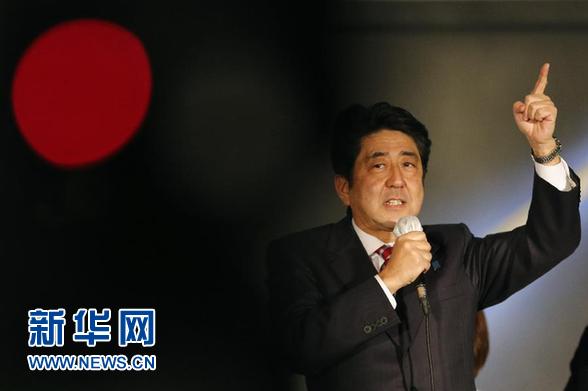

 |
BEIJING, April 25 -- A prime minister who speaks one way and acts another is a danger to his nation.
Such duplicity is not the act of a gentleman.
Japanese Prime Minister Shinzo Abesaid he felt "deep remorse" about past wars and pledged to adhere to peace at the Asian-African Summit in Indonesia on Wednesday. Hours later, three of his cabinet members visited the notorious Yasukuni Shrine, which honors World War II (WWII) criminals.
Just a day before the summit, he also personally sent an offering to the war dead honored at the shrine.
What "deep remorse."
While Abe shows "remorse" and promises peace, he honors war criminals.
This behavior of split personality won't convince the world he is leading Japan to a peaceful and prosperous future or good relations with the country's wartime victim neighbors.
Abe's statement should be accompanied by concrete and positive actions to show sincerity rather than acts that raise regional security concerns.
His consistent double-dealing has disappointed the world and drawn rebukes both at home and abroad.
U.S. State Department acting spokeswoman Marie Harf reiterated the U.S. position this week that historical issues should be dealt with "in a manner that promotes healing and reconciliation for all parties."
Abe should not mislead the world into thinking that Japan has retrogressed on its views on historical issues, said Democratic Party of Japan leader Katsuya Okada.
In 1995, on the 50th anniversary of WWII's end, then-prime minister Tomiichi Murayama publicly apologized for the damage and suffering Japan inflicted upon Asian nations through its colonial rule and aggression. This is known as the Murayama Statement.
Abe, a strident historical revisionist, said he would not completely repeat the Murayama Statement's wording, including the phrase "colonial rule," in his speech for the 70th anniversary of the end of WWII this August, according to media reports.
Past aggression led by Japanese militarists brought atrocities to people around the world, not to mention trauma and economic depression in Japan.
However, Japan's postwar suspension of military forces and sobering remorse once made it the world's second largest economy. The people of Japan and the world will not allow that progress to be halted by the Abe government.
 J-11 fighters in air exercise
J-11 fighters in air exercise Beauties dancing on the rings
Beauties dancing on the rings Attendants-to-be join Mr. & Miss Campus Contest
Attendants-to-be join Mr. & Miss Campus Contest Beijing's toughest anti-smoking law takes effect
Beijing's toughest anti-smoking law takes effect Family lives in cave for about 50 years in SW China
Family lives in cave for about 50 years in SW China PLA soldiers operating vehicle-mounted guns in drill
PLA soldiers operating vehicle-mounted guns in drill Blind carpenter in E China's Jiangxi
Blind carpenter in E China's Jiangxi China hosts overseas disaster relief exercise for the first time
China hosts overseas disaster relief exercise for the first time 20 pairs of twins who will become flight attendants in Sichuan
20 pairs of twins who will become flight attendants in Sichuan Obama is sowing discontent in S.China Sea
Obama is sowing discontent in S.China Sea Rescuers work through night to reach cruise ship survivors
Rescuers work through night to reach cruise ship survivors Driving through limbo
Driving through limbo Facing down MERS
Facing down MERSDay|Week